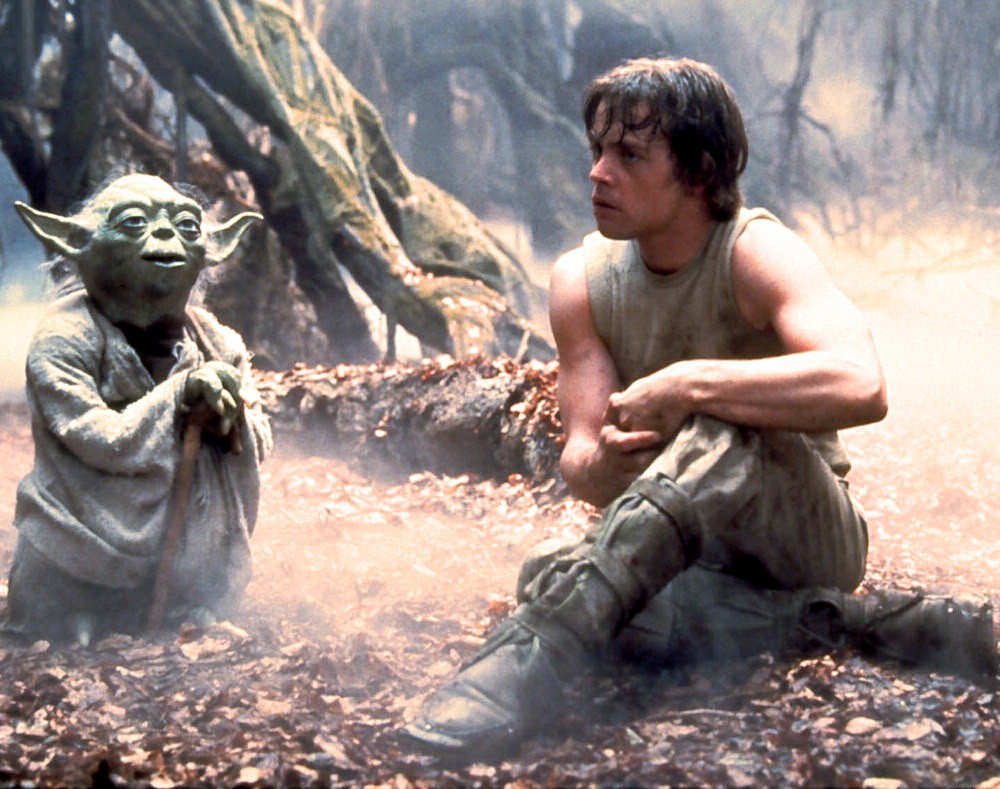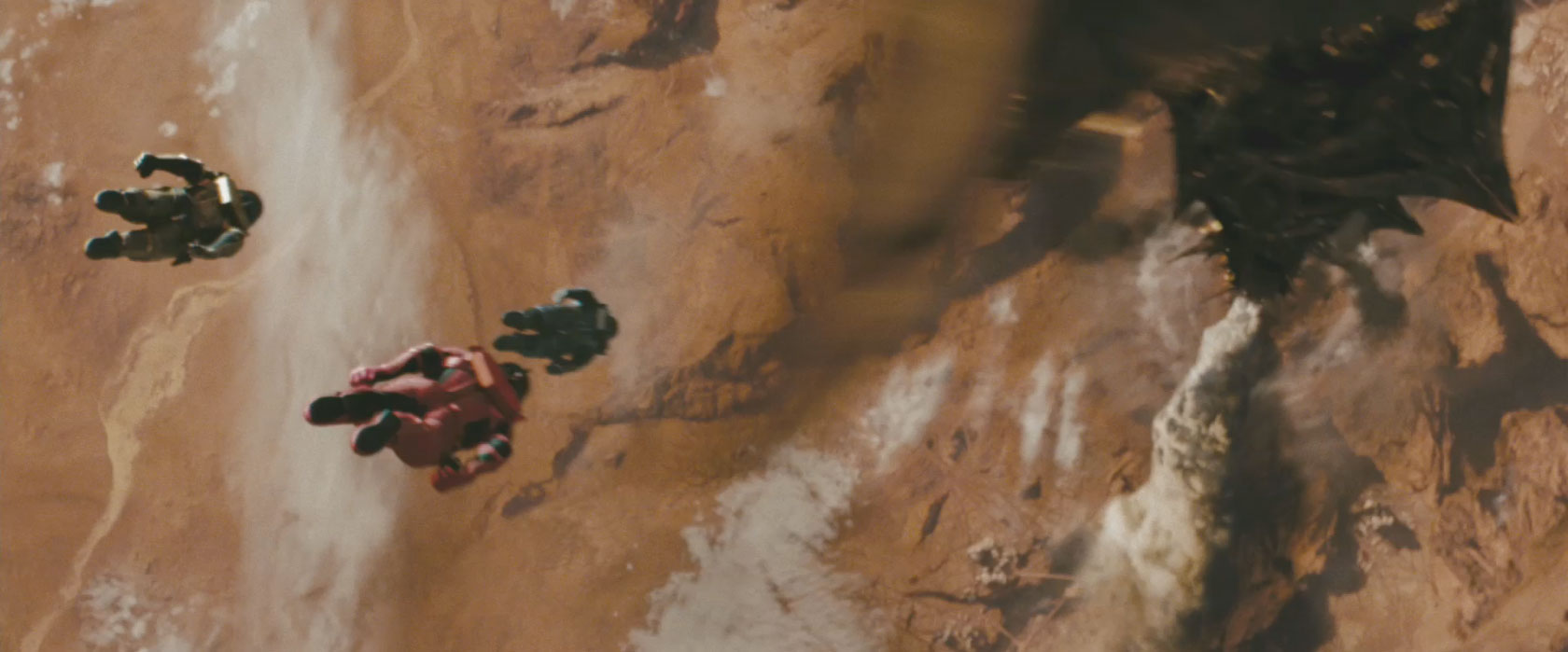Today is Presidents Day in America. While the holiday is
supposed to honor President George Washington's birthday, we don't actually do
anything to celebrate besides take the day off work and buy stuff that's on
sale.
This year's holiday has me reflecting on leadership. I just completed a one-year term as the executive leader of a psychological association. As a part of that leadership transition, I wrote a letter to my successor about the lessons I learned, the mistakes I made, and advice I had for the future of the organization.
I referenced science fiction many times in that letter. It wasn't just because both of us are big geeks (though that certainly helped). After writing that letter, I realized how much the genre influenced the decisions I made as a leader in psychology.
Here's a peek at what I wrote in that letter.
1) Have a bold vision.
I used to believe that an organization's greatest challenge is limited resources (money, staff, tools). I now know that what is much more important is having a bold plan for the future. Creating a simple (and powerful) mission, vision, and strategic plan is the most important job for a leader. When done correctly, a strategic plan energizes all members of a group, prioritizes tasks and the allocation of resources, and helps the organization move forward. Without it, organizations risk fading into obscurity.
Science fiction has one of the most inspiring mission statements ever written and you probably already have it memorized.
Space, the Final Frontier. These are the voyages of the starship Enterprise. Its continuing mission: to explore strange new worlds, to seek out new life and new civilizations, to boldly go where no one has gone before.
Starfleet captains prioritize exploration above all else.
The mission of Star Trek's U.S.S. Enterprise is short, powerful, and makes you want to enlist in Starfleet. Everything on the Enterprise is organized around its mission. That's why Captain Picard has so many scientists on his starship while the Klingons have drunk warriors with swords (their mission is to fight honorably and drink blood wine). This also explains why the Federation has become the dominant group in the Alpha Quadrant—they have a plan that inspires while their neighbors keep changing their minds about who they are and what to do next.
2) Build a leadership pipeline.
I didn't seek my position. I was encouraged to run by someone else. Once I was elected, my predecessors trained me. Since most individuals won't seek out leadership opportunities (because they’re intimidating), it's the job of those who are currently in positions of power to always be on the lookout for potential successors. That's how leadership works—experienced people transitioning out mentor new passionate folks in. This type of leadership pipeline keeps an organization nimble and creative.
The Jedi have perfected their leadership pipeline.
The Jedi (and Sith) of Star Wars know this well. As Yoda said, "Always two there are…a master and an apprentice." Jedi masters identify children with a strong connection to the force and pass down their knowledge through an apprenticeship. What I love about this example is how integrated it is throughout the Star Wars universe—anywhere you see a Jedi Knight or Sith Lord, not too far away you'll find their apprentice observing, learning, and getting ready to step in and continue the mission of their mentors.
3) Honor the past.
I campaigned on a platform of change. After settling into my position, I learned in order to be an effective agent of change I had to balance change with continuity. That meant learning my organization's history, understanding how it worked, and talking to experienced staff and leaders about the changes they (not I) would like to see happen. By honoring the past, leaders ensure consistency with an established plan and open people to the possibility of change.
Can human and cylon leaders overcome the mistakes of their ancestors?
Understanding the past is a major theme in Battlestar Galactica. Both the cylons and humans believe "All this has happened before…All this will happen again." Patterns of creation, destruction, and rebirth are common throughout the 12 Colonies. Past leaders failed to understand how these patterns repeated. The major question of the series became whether or not the current generation could understand the mistakes of the past in order build a peaceful future.
4) Diversity makes a team stronger.
In the first meeting I chaired, I tried to get everyone to agree with each other. That was a mistake. Not only is it impossible to get complete consensus, but that type of groupthink is also incredibly dangerous. I learned the hard way that a leader's responsibility is to create a space that allows people with different perspectives to engage in honest dialogue. Then, the team acts on an idea that makes the most sense for the existing strategic plan. Without diversity in a group, leadership is stuck kicking around the same stale old ideas.
Charles Xavier: "I always believed I couldn't be the only one in the world. The only person in the world who was different."
Someone who knows about the advantage of diversity is the
founder of the X-Men, Professor Charles Xavier. He built a team of mutants with
different powers and personalities. While members of his team often clashed
(the conservative Cyclops never really got along with the anti-establishment
Wolverine), the X-Men were much more powerful because of the diversity of talent
within the group.
5) With great power comes great responsibility.
Sitting in a meeting surrounded by many of the psychologists I grew up reading about helped me realize that my position gave me privileges others did not have. Shaping the future of science, education, healthcare, and public policy skyrocketed my career forward. But with that power came a lot of responsibility—meetings to attend, agendas to review, reports to write, emails to send, conference calls to schedule, and crises to resolve. The work was crushing, especially since it was on top of my day job. Last year all of my vacation time was used just to attend meetings, which really took a toll on my friends and family. The experience was deeply meaningful, though it was not without sacrifice.
Power and responsibility play a major role in the origin of Spider-Man.
Marvel's Spider-Man had a similar experience. A radioactive spider bit Peter Parker, giving him arachnid strength, agility, and the ability to climb walls. Peter first used his powers for fame and ignored an opportunity to stop a criminal. Later, the same criminal killed Peter’s uncle. The experience helped him understand what his uncle meant when he said, "With great power there must also come great responsibility". Accepting the responsibilities of power is what separates heroes from the villains.
Based upon your own experiences, what advice would you give to individuals entering leadership positions?
























